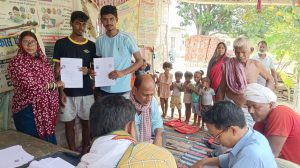Seeds sown for farm reforms
Years after liberalisation has shook up other government-controlled sectors, agriculture is getting set to follow suit. The Centre has conve...

Years after liberalisation has shook up other government-controlled sectors, agriculture is getting set to follow suit. The Centre has convened a meeting of all state agriculture ministers on January 7 to discuss the possibilities of amending the archaic laws that govern regulated state markets (mandis).
Announcing the meeting at the Indian Summit-2003 of the World Economic Forum here earlier this week, P K Agarwal, agriculture marketing adviser to the Union government, said that a model Act was already in circulation. The onus of initiating reform now lies with the states.
|
On the cards?
|
|||||
|
• Easy credit in rural areas |
|||||
Reacting to Agarwal’s statement, Dhruv M Shawney, CMD of Triveni Engineering & Industries, said the Centre should persuade the states to implement the reforms and bring the unwilling states into line by withholding grants. He also suggested that the states be given an additional subsidy if mandi tax and cess were to be abolished.
At the summit, experts present approved of the Confederation of Indian Industries (CII) draft on agricultural reforms, and urged the CII to motivate both the states and the Centre on speedy implementation.
Among the measures suggested were easy flow of credit in rural areas, establishment of Nabard delivery outlets in rural areas for direct loans to farmers and agro-processors, non-regulation of interest rates on farm loans, revamping of regional rural banks, private participation in developing wastelands, fiscal benefits for rural and farm sector investors, reduction in import duty on items of need for the processing industry, formulation of integrated food laws, pledge financing, making warehouse receipts as a negotiable instrument in trade, accreditation of warehouses, setting up of competitive markets and implementation of grading and standardisation norms.
Stressing the need for commodity futures, ITC chairman Yogesh C Deveshwar said that application of IT can help the farmers in price discovery. He said that his organisation has so far set up 2,500 IT portals — each costing Rs 3 lakh — throughout the country.



- 01
- 02
- 03
- 04
- 05




























